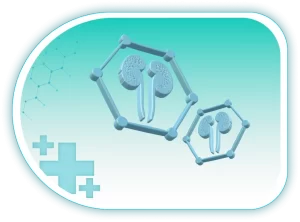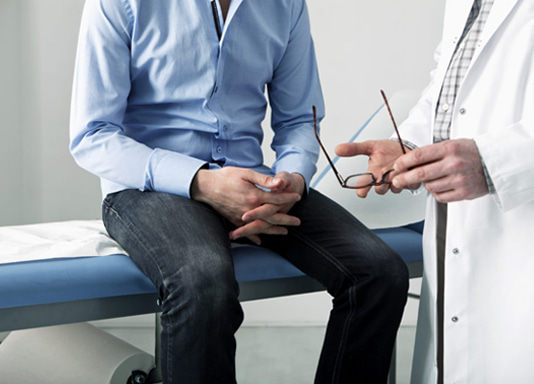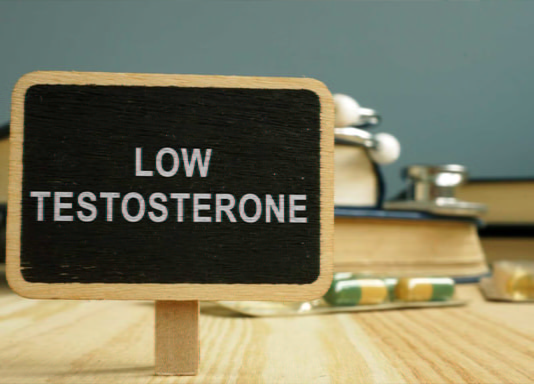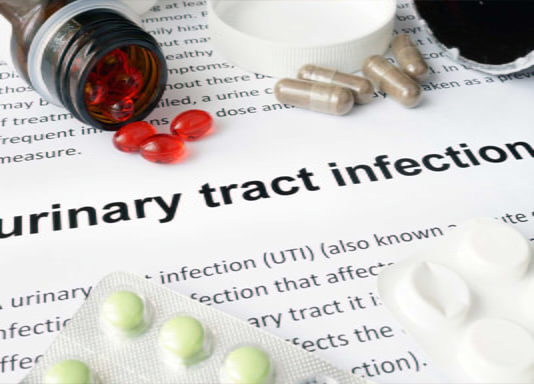in male fertility by secreting a fluid that nourishes the sperms and constitutes a large portion of the seminal fluid. Prostatitis is the medical terminology applied when there is an inflammation inside your prostate gland. It can be of sudden-onset (acute) or persistent (chronic).
Acute prostatitis is a form of infective prostatitis. It is due to infection of the prostate gland with a germ (= bacterial infection). Chronic prostatitis can be due to a long-term infection, or an inflammation without infection.
Acute prostatitis is commonly caused by the same bacteria that can cause urinary tract infections or sexually-transmitted diseases. These bacteria can get into the prostate by traveling up the urethra. Some of causative bacteria can reach your prostate through your blood from another body organ or tissue inside your body. Other infections are transmitted through sexual contact. Also, the presence of a urinary catheter for a long duration inside the urinary tract can increase the risk of developing urinary tract infections, among which is acute prostatitis.
What are the symptoms of acute prostatitis?
In such acute illness, symptoms usually develop quickly – typically over a few days or so. These include:
- Pain from your prostate; pelvic pain which may be severe. You may also feel the pain at the base of your male genital organ, around your anus, just above your pubic bone and sometimes even you feel it in your lower back. Pain may spread to the testicles. You may also feel discomfort during bowel motions (while passing stools).
- High fever, chills, aches and malaise (you feel yourself down and really sick)
- Urinary symptoms in the form of pain when you pass urine, passing urine frequently, an urgent desire to pass urine, foul-smelling urine, difficulty emptying your bladder, weak urinary stream, and sometimes you may notice bloody urine.
- Pain during ejaculation (sometimes a burning sensation)
How can acute prostatitis be diagnosed?
Your trusted Urologist will likely start by history taking (asking relevant questions that can give him a clue about the problem and potential reasons behind your symptoms). He will also conduct a physical examination. During the bed-side clinical assessment, most probably a digital rectal examination (DRE) will be conducted. During this examination, if you have acute bacterial prostatitis, your prostate will likely be swollen and tender. Your doctor also will do a general exam to make sure that infection has not spread to other organs, such as the kidneys.
Certain additional diagnostic tests could be required, such as:
- a complete blood count (to check your white blood cell count; expectedly high in such case)
- a blood culture to rule out bacteria in your blood
- a urinalysis and urine culture to test your urine for blood, white cells, or bacteria
- a urethral swab to test for gonorrhea or chlamydia
- Kidney function tests (to assess the functions of your kidneys and rule out any involvement)
- Pelvic Ultrasound (this is to rule out any problem with your urinary tract that may have contributed to causing the infection)
- urodynamic tests to check if you have problems emptying your bladder
- In certain cases, a cystoscopy (a diagnostic test that allows your doctor to look at the inside of your bladder and urethra. It’s done using a thin, lighted tube called a cystoscope) might be required to examine the inside of your urethra and bladder for signs of infection or obstruction.
What is the treatment for acute prostatitis?
If accurately diagnosed and treated promptly, the symptoms of acute prostatitis usually begin to improve within few days. In more severe cases, symptoms of infection may linger for weeks.
- Antibiotics: A broad spectrum antibiotic (known for its effectiveness on urinary tract infections) is routinely started once the diagnosis is confirmed, even before the retrieval of the urine culture result. The urine culture and sensitivity result is to confirm the identity of the assailant bacteria and the most effective antibiotic (s) to combat it. Based upon its result, the initiated antibiotic may be continued or changed to another. Four weeks of antibiotics are believed to be necessary to reduce the possibility that you develop persistent (chronic) prostatitis if not fully treated.
- If you are severely ill, your treating Urologist may admit you to the hospital to give you a course of intravenous antibiotics and make sure your vital signs remain stable. Usually, a stay of only a few days is needed.
- Pain killers and Paracetamol for the fever are prescribed as supportive treatmentIs the prognosis good?
Most cases of acute prostatitis respond promptly and well to treatment. Your treating Urologist may recommend a prolonged course of antibiotics. Even if you start to feel better, it is crucial to finish the full treatment. Symptoms of discomfort or hesitancy as you pass urine may linger for a while, but eventually should go away completely.



















